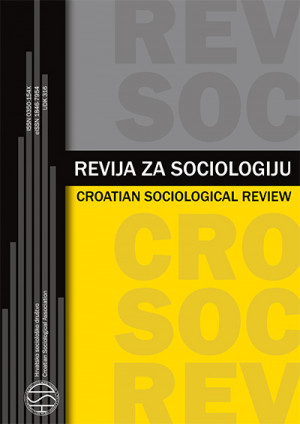Transfer of Governance Culture: A Case Study of Socio Cultural Barriers for Institutional Adaptation in Croatia
Transfer of Governance Culture: A Case Study of Socio Cultural Barriers for Institutional Adaptation in Croatia
Author(s): Saša Poljanec-Borić, Jadranka ŠvarcSubject(s): Politics, Sociology, International relations/trade, Sociology of Culture, EU-Accession / EU-DEvelopment
Published by: Hrvatsko sociološko društvo
Keywords: croatia; governance culture deficit; integration; european union; socio cultural capital; political capital;
Summary/Abstract: The paper discusses the results of the empirical research on cultural encounters between Croatian and EU public administrations. The research identifies several socio cultural barriers within the Croatian national administration that could be treated as governance culture deficit. The “deficit” has been detected through the “unpleasant surprise” of public officers coming from European countries through South Stability Pact Agreement (SSPA) and through descriptions of “conflicts” in the encounter reported by domestic respondents participating in the cooperation designed by SSPA. The deficit was found to be composed of three barriers: a) lack of vision or value disorientation; b) catatonic behaviour or irrational administration and c) “don’t rock the boat culture” or inertia syndrome. On the other hand two principal governance transfer “enhancers” were identified on the part of local administration: a) vertical mobility aspiration and b) historic (superior) business mission. The discussion argues that two out of three governance deficits are path dependent and common to all post totalitarian societies. However, one deficit is labelled as “situational”, therefore country specific, as it is related to the “postponed accession” to the EU. The governance enhancers are explained as subjective categories related to the individual aspirations and career development. In conclusion it is suggested that hesitant integration perspective for Croatia fosters the petrifaction of post totalitarian liabilities in governance practice.
Journal: Revija za sociologiju
- Issue Year: 39/2008
- Issue No: 3
- Page Range: 123-144
- Page Count: 22
- Language: English

